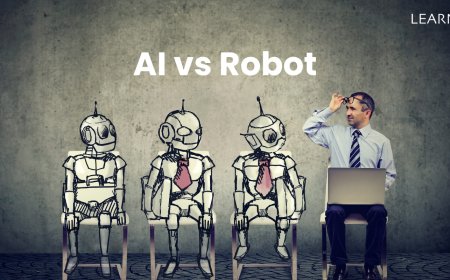Creating websites is like building online homes. It involves using a mix of coding, programming, and design to make cool stuff you can interact with on the internet. From simple pages to fancy ones, web development covers it all. Having a website is important for businesses, groups, and even regular people to be noticed online. To start making a website, you need to know about basic web stuff like HTML, CSS, and JavaScript. HTML helps organize what's on the page, CSS makes it look good, and JavaScript adds fun things like moving parts or popup messages.
Today, websites need to work well on different devices, like computers, tablets, and phones. This is called responsive design, and it's all about ensuring everyone has a good experience, no matter what they're using. In this advanced world of web development, it's crucial to keep learning about new technologies and design styles. Whether you're into coding, design, or both, being good at web development can open up lots of opportunities online.
Frontend Development: Creating Great Digital Experiences
Frontend development is like the building blocks of the internet. It's all about making websites and apps look good and work smoothly. Think about how a website looks and how you interact with it – that's what front-end developers do. They use languages like HTML, CSS, and JavaScript to make websites and apps. HTML sets up the structure, CSS adds colors and styles, and JavaScript makes things move and respond when you click on them.
There are also tools like React, Angular, and Vue.js that make frontend development easier. They help developers build cool stuff without starting from scratch every time. One big thing in frontend development is making sure websites look good on all devices – like phones, tablets, and computers. This is called responsive design. Developers use tricks like changing layouts and sizes to make sure everything looks good no matter what device you're using. So, frontend development is all about making the internet a better place. From making websites easy to use to making them work on any device, frontend developers are the ones making it happen.
Understanding Backend Development
When it comes to building websites, there's a crucial part called backend development that does a lot of the heavy lifting. It's like the engine under the hood, making sure everything runs smoothly and handles all the behind-the-scenes stuff.
1. Coding Languages for the Server: Backend developers use different coding languages like Node.js, Python, and Ruby to create the inner workings of a website. Node.js is great for making fast and efficient applications. Python is known for being easy to read and versatile, and Ruby offers elegant solutions to problems.
2. Storing and Getting Data: In backend development, storing and getting data is important. There are two main types of databases: SQL and NoSQL. SQL databases, like MySQL and PostgreSQL, organize data neatly and can handle complicated questions. NoSQL databases, such as MongoDB and Redis, are good for handling lots of data quickly.
3. Connecting Different Programs: Backend developers make things called APIs to help different programs talk to each other. They also create web services that let different systems share data and work together. This is useful for making modern apps that can do a lot of different things.
4. Keeping Servers Running Smoothly: Backend developers are in charge of making sure the servers that run websites are working well. They use tools like Docker and Kubernetes to make sure everything runs smoothly and stays safe and reliable.
Unlocking the Power of Full-Stack Development
Full-stack development is a cool way to build stuff. It means you're good at both making the parts people see (like buttons and menus) and the parts they don't (like databases and servers) all in one project. This helps make sure everything works together smoothly. So, what skills do you need? Well, for the stuff people see, you need to know HTML, CSS, and JavaScript, plus some frameworks like React or Angular. For the scenes stuff, you need to know languages like Python or JavaScript, and frameworks like Django or Express.js. And don't forget about databases like MySQL or MongoDB to store all your data.
The great thing about full-stack development is that it makes everything easier. When one person or team can handle both sides of a project, communication is smoother, and things get done faster. Plus, because full-stack developers understand how everything works together, they can fix problems and make things run better overall.
Having a strong online presence is super important for both businesses and individuals. A really good website not only brings in visitors but also keeps them interested, which helps you succeed. Getting good at making websites is like going on a journey. You need to be creative, know your tech stuff, and think smart. Let's check out what it takes to become a great web designer.
1. Know the Basics
Before you start making websites, it's important to understand some basic stuff. You should learn about HTML, CSS, and JavaScript. These are like the building blocks of the web. Knowing how they work together helps you create awesome web pages.
2. Make Websites that Work Everywhere
These days, people use all kinds of devices to surf the web, like phones and tablets. So, your website needs to look good and work well on all of them. This is called "responsive design." It means your site adjusts to fit any screen size. To do this well, you use flexible grids, images, and special codes.
3. Prioritizing User Experience (UX)
Good web design isn't just about looks; it's about making things easy for the people who visit your site. To do this, you need to understand how people behave online. This includes doing research, creating profiles of your typical users, and testing your site to see how easy it is to use.
4. Focusing on Accessibility
Your website should be easy for everyone to use, even if they have disabilities. This is called "web accessibility." You can do things like adding descriptions for images and making sure people can use your site with just a keyboard. This makes your site welcoming to everyone.
5. Paying Attention to Visual Hierarchy and Typography
When people visit your website, you want them to focus on important stuff first. This is called "visual hierarchy." You can use things like size, color, and spacing to show what's most important. Also, pick the right fonts so everything is easy to read and looks good.
6. Optimizing for Performance
People don't like waiting for websites to load. So, you need to make sure your site loads quickly and works smoothly. This means making files smaller, saving stuff in the browser's memory, and reducing the number of things your site has to ask for. Fast sites make people happy and help you rank better on search engines.
7. Continuous Learning and Improvement
Becoming a great web designer isn't something you do overnight. It's a journey that never ends. Keep learning new things, trying out new tools, and asking for feedback. This helps you stay ahead in the world of web design.
Web Development Tools and Software: Making Websites Easy
Building websites, and using the right tools can make things a whole lot easier. These tools help you write, edit, and manage your website's code, design it, test it, and get it online for people to see. Let's take a look at some of the important tools and software that can help you make awesome websites.
1. Code Editors:
Code editors are like special notepads for writing code. They help you write and organize your code neatly. Some popular ones are Visual Studio Code, Sublime Text, and Atom. They come with cool features like color-coding your code, suggesting words as you type, and letting you pick different looks for your workspace.
2. Integrated Development Environments (IDEs):
IDEs are like supercharged code editors. They do everything a code editor does and more. Tools like IntelliJ IDEA, Eclipse, and NetBeans help you write code, fix mistakes, and manage big projects all in one place.
3. Version Control Systems (VCS):
Version control systems are like fancy filing systems for your code. They help you keep track of changes you make, work with others on the same project, and go back to earlier versions if you need to. Git is the most popular one, and it works with websites like GitHub, GitLab, and Bitbucket.
4. Frontend Frameworks and Libraries:
These are like ready-made building blocks for your website. They help you create things like buttons, menus, and forms without starting from scratch. React.js, Angular, and Vue.js are some examples. They make it easier to build interactive and cool-looking websites.
5. Backend Frameworks and Platforms:
These tools help you build the parts of your website that visitors don't see, like how data is stored and processed. Node.js, Django, and Ruby on Rails are examples. They make it easier to create websites that can handle lots of visitors and data.
6. Testing and Debugging Tools:
These tools help you make sure your website works well and doesn't have any bugs. They test things like how fast your website loads and if everything works on different devices and browsers. Selenium, Jest, and Cypress are some examples.
7. Deployment and Hosting Platforms:
Once your website is ready, you need a way to put it online for people to see. These platforms help you do that easily. AWS, Heroku, and Firebase are examples. They make it easy to upload your website and make sure it stays online all the time.
8. Performance Optimization Tools:
These tools help you make your website faster and smoother for visitors. They give you tips on things like compressing images, making your code smaller, and storing data more efficiently. Google PageSpeed Insights, GTmetrix, and WebPageTest are some examples.
In simple terms, web development is super important in the tech world. It's always changing because people's needs online keep changing. To be good at web development, you need to be creative, know your tech stuff, and be able to adapt to new things. With everyone using smartphones and caring more about how easy it is to use a website, web developers are like the architects of the internet. Learning about web development helps both individuals and businesses make cool and useful websites that people all over the world can enjoy.






































